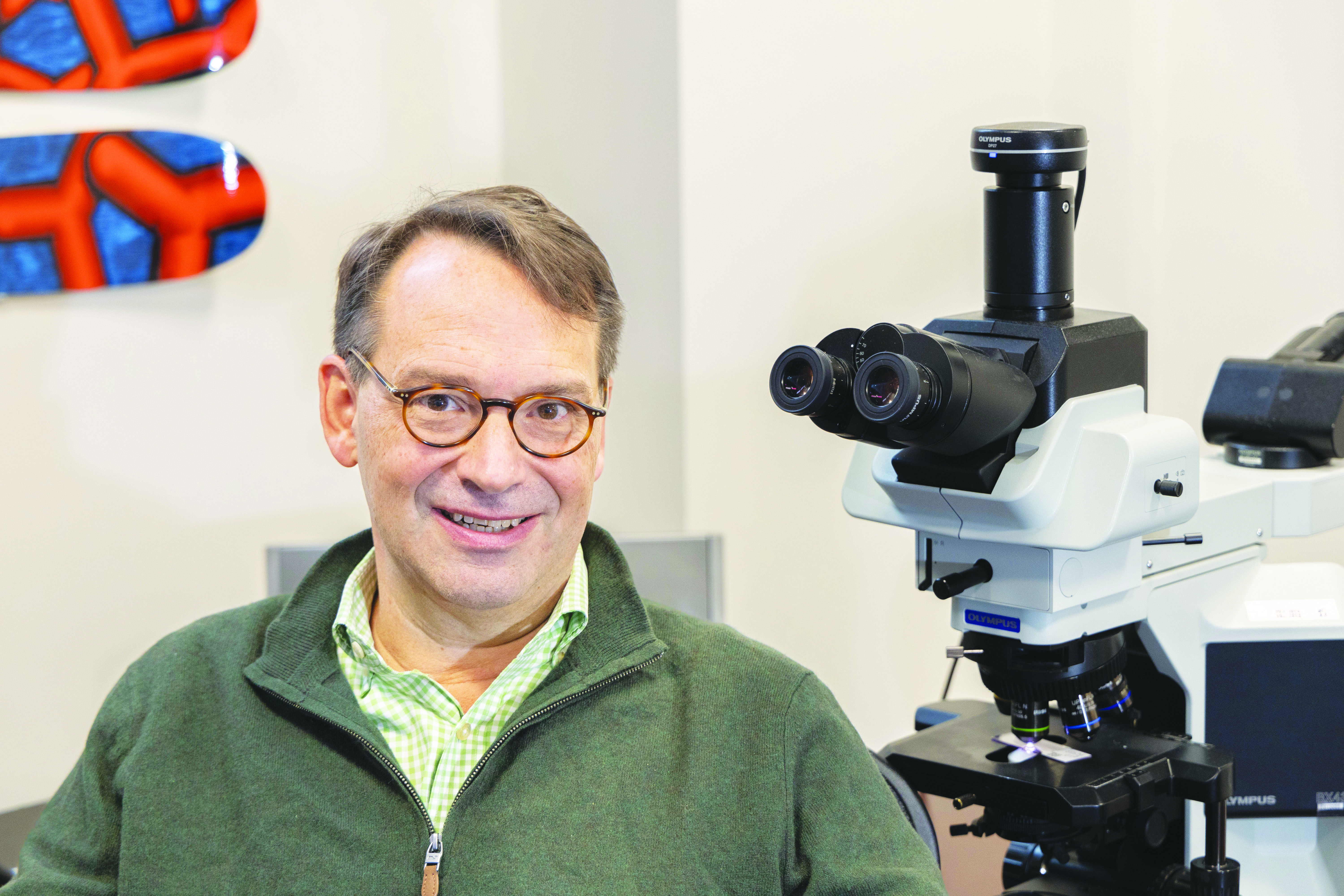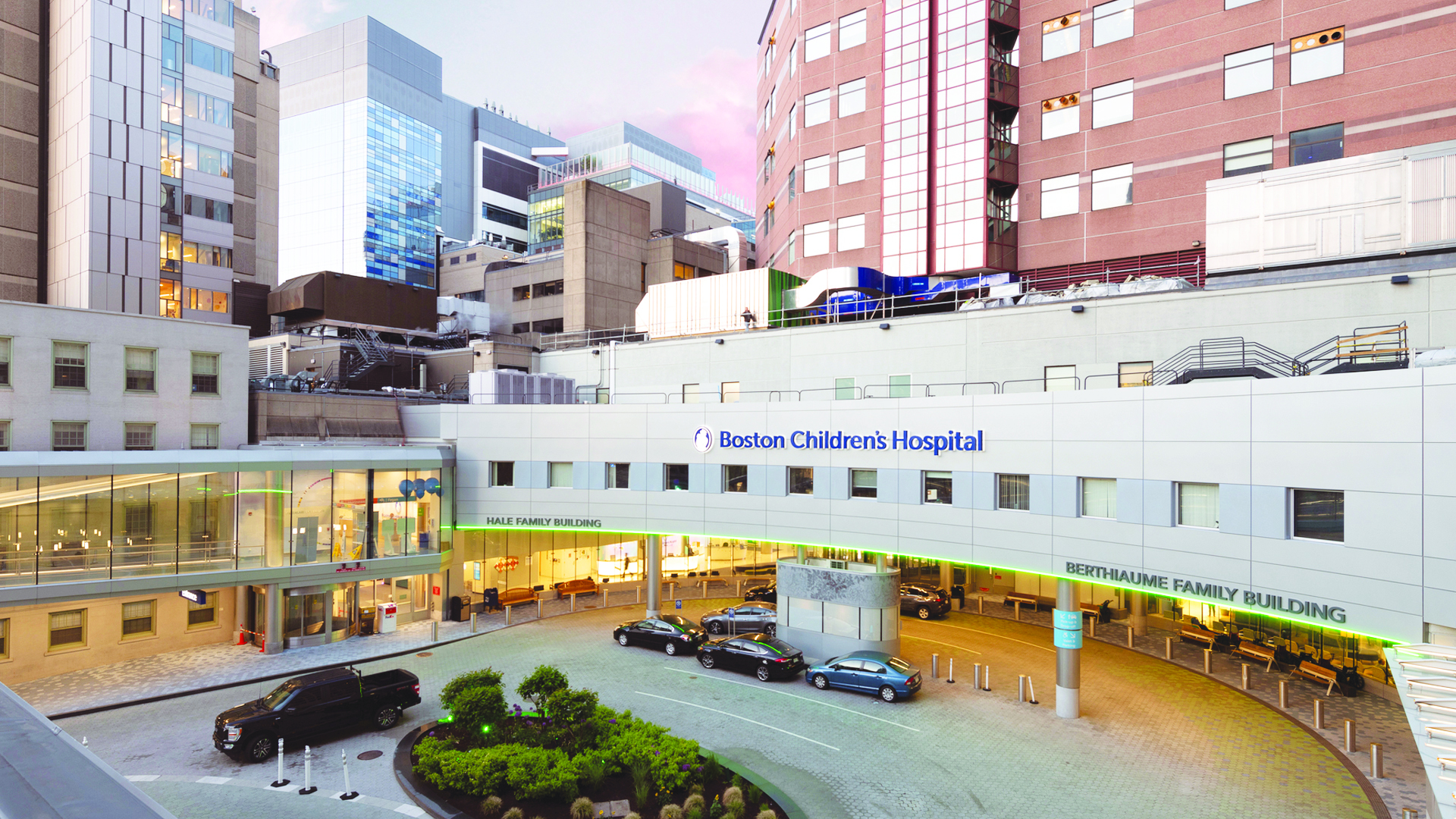‘Paediatric cancer is understudied and underserved’
The old town hall in Nicosia will host an evening on September 16 where grief is transformed into purpose.
Under the auspices of President Nikos Christodoulides, the Nicholas Zoe Foundation will welcome Boston Children’s Hospital in a partnership that stretches from Cyprus to the United States, carrying the memory of one child into a global effort against paediatric cancer.
The event, “A Golden Effort – From Cyprus to Boston”, is inspired by Gold September, the international awareness month for childhood cancer.
It marks the first time Cyprus has become the stage for such a collaboration, one that unites philanthropy, science and the determination of families.
Nicholas’ wish
The Nicholas Zoe Foundation was established in 2023 by Alexia Potamitou in memory of her son, Nicholas Artemiou, who died aged nine after a battle with Ewing Sarcoma, a rare childhood cancer.
Known for his rare kindness and resilience, Nicholas called his illness “the beast” and hoped that no other child would face it.
“The foundation may have been born out of tragedy and loss,” Potamitou said, “but it aspires to help fund new breakthroughs in paediatric sarcoma research. This was Nicholas’ wish, that no child fights the ‘beast’.”
From its base in Cyprus and the United States, the foundation funds innovative research, supports families, and raises awareness through education and partnerships.
It has already provided more than $200,000 to Boston Children’s Hospital, with the goal of raising half a million dollars to accelerate a groundbreaking liquid biopsy into clinical use.
Mark Fleming’s journey
The partnership will be represented in Nicosia by Mark Fleming, pathologist-in-chief at Boston Children’s Hospital. His own path to medicine began in unlikely fashion.
The sight of blood once sent Fleming crashing to the floor of his high-school biology class. For most, that might have been the end of any thought of medicine.
But Fleming chose a different path. He forced himself back into the lab that summer, determined to face what frightened him.
There, among microscopes and slides, he discovered something unexpected: the quiet complexity of blood cells. What began as fear turned into fascination, and ultimately, a lifelong commitment to medicine.
Today, Fleming leads the Laboratory for Molecular Paediatric Pathology (LaMPP), where his team is focused on improving treatments for children with cancer by matching them with gentler therapies.
This personalised approach is vital for young patients whose developing bodies are more vulnerable to the harsh, long-term effects of chemotherapy and radiation.
LaMPP uses next-generation sequencing to find cancer’s hidden causes, combing through individual tumour cells to identify where problems exist and focus directly on those cells.
“Boston Children’s can defeat cancer, but we need strong partners who share our vision,” Fleming said. “With dedicated support, we can change the future for cancer patients everywhere.”
A new way to see cancer
Philanthropic support has also been central to Fleming’s latest work: a liquid biopsy project, backed by the Nicholas Zoe Foundation and developed in partnership with Cyprus.
Speaking to the Cyprus Mail, Fleming said that the test uses DNA from blood samples to track tumours and monitor their response to therapy, enabling earlier detection and more precise, less invasive treatments.
“Paediatric cancer is understudied and underserved,” Fleming said.
The comparative rarity of these tumours, he explained, makes them less compelling as commercial targets for companies to develop diagnostics and therapeutics. “Consequently, academic institutions need to bridge that gap.”
For example Nicholas’ cancer, Ewing Sarcoma, causes cancerous tumours in bones and soft tissues like muscles, tendons and ligaments and impacts about one per cent of children in the US.
“We at BCH/DFCI (Boston Children’s Hospital/Dana-Farber Cancer Institute) are committed to the goal of working to gain and share knowledge across borders,” he added, noting that the association with the Nicholas Zoe Foundation will support both the development of diagnostics and establish relationships that enable clinical collaboration.
When asked about the liquid biopsy, Fleming explained that “the test that we are developing aims to support the care of patients with Ewing sarcoma (EWS) as well as nearly all other paediatric ‘solid tumours.”
He said the test “detects tiny amounts of tumour DNA present in the blood using the most sensitive genetic testing methods currently available.”
After initial surgery or chemotherapy, “the test has been shown in the research setting to reliably tell how the patient is responding to treatment in real time and to predict which tumours may recur.”
This offers a crucial window into response: patients who likely won’t recur can continue to be monitored, while those with a high likelihood of recurrence can receive more therapy to try to reduce the risk.
“We are hopeful that longitudinal testing may be able to detect tumour recurrences much earlier than radiological testing,” he added, “enabling earlier retreatment”.
From research to clinic

“In order to ensure that the test is of a high standard to treat patients, certain requirements, reproducibility, sensitivity, specificity, need to be revised and rigorously tested within clinical laboratories,” he said.
“That testing is underway now and we expect to have a patient-ready version of the test within the next year.”
“Thereafter, we will begin to test its applicability in real time to care for patients,” he explained.
Funding and ethics
Funding, Fleming stressed, is a decisive factor. “Foundation funding is essential for the success of such an effort. Although we understand the importance of each child’s life and cancer journey, the reality from a funding perspective is that each paediatric cancer type is very rare.”
As an example, he cited breast cancer which is 35 times more common than all paediatric cancers.
“As such, there is little interest in such ultrarare diseases in the pharma industry as they are unlikely to yield a financial profit,” he said.
“Public funding, which has become increasingly challenging, also fails to bridge the gap to bring a research test into the clinical environment.”
“Time and time again, the dedication of donors committed to specific causes has elevated the status and ultimately outcomes of research,” Fleming said.
“For example, were it not for the Joey Fund, which was founded by the family of a child with cystic fibrosis, we would not have the drugs currently available to treat cystic fibrosis, which have fundamentally changed the outcomes for more than 85 per cent of cystic fibrosis patients.”
Looking to the future, Fleming set out his vision for the Boston–Cyprus partnership.
“In five years’ time, we hope that patient data and samples (and patients, as required) will transit freely between BCH/DFCI and Cypriot physicians.”
Julia Burke: building partnerships
Where Fleming focuses on science and diagnostics, Julia Burke turns to partnerships and philanthropy, ensuring the hospital’s mission reaches far beyond the laboratory.
For Burke, the heart of her work is people, families, caregivers, researchers and partners who come together for one purpose: creating healthier tomorrows for children everywhere.
As international director of development at Boston Children’s Hospital Trust, she advances the hospital’s missions of patient care, research, education and community health by building relationships that last.
“I especially enjoy partnering with families and individuals who are passionate about elevating care for children around the world,” she said.
That passion is reflected in Boston Children’s global reach. Each year, nearly 2,000 patients from more than 100 countries, including several families from Cyprus, arrive in Boston seeking world-class care.
Its researchers join forces across countries and continents to achieve the best possible outcomes for patients. Through the Global Health Programme, the hospital collaborates with partners in 60 countries to strengthen care.
Speaking with Cyprus Mail, Burke explained what qualities she looks for in partners when building sustainable collaborations.
“We look for families and organisations who are passionate about raising the level of care for children everywhere,” she said.
She pointed to one example where international collaboration has already led to a breakthrough: between Boston children’s hospital, Great Ormond Street hospital in London, at Murdoch Children’s Research Institute in Australia, and in Canada at Toronto Hospital for Sick Children).
“These four institutions came together to solve major child health challenges.”
An example is epilepsy, which is common but can take years to diagnose. Rapid genome sequencing was used to diagnose babies in weeks instead of months, gaining valuable time and informing care.
Burke noted that over 100 infants were enrolled, surpassing the goal and timeline. “Forty-three infants received a genetic diagnosis, and for 24 of them, the diagnosis informed their treatment.”
Turning to Boston Children’s Global Health Programme, Burke admitted that the global needs of children are “overwhelming right now”.
She said the programme “prioritises work that involves partnerships with the ministry of health, public universities, and teaching hospitals to build sustainable, long-term relationships for high impact that lasts”.
“We bring technical and operational packages across the specialties and general paediatric care to these collaborations,” she explained.
Finally, Burke reflected on the Nicholas Zoe Foundation.
“I have found that these personal stories are the most powerful way to connect with individuals, to help people understand the impact they can have through their philanthropy,” she said.
For her, the lesson is clear: “international collaborations are essential in our global world, children deserve the best care, no matter where they live.”
A Cypriot stage
The Nicosia event will reflect that vision. Alongside Fleming and Burke, Christodoulides will deliver a video address, while Foreign Minister Constantinos Kombos and Cyprus Medical Association president Petros Agathangelou will also speak. Potamitou will share her story in a keynote entitled “A Mother’s Journey of the Heart”.
The evening will also feature a charity art auction curated by Maria Paphiti, showcasing works by Cypriot artists, with proceeds supporting the foundation’s mission.
From Nicholas’ memory to Fleming’s laboratory and Burke’s partnerships, Cyprus now stands as a bridge between loss and discovery, grief and possibility.






Click here to change your cookie preferences